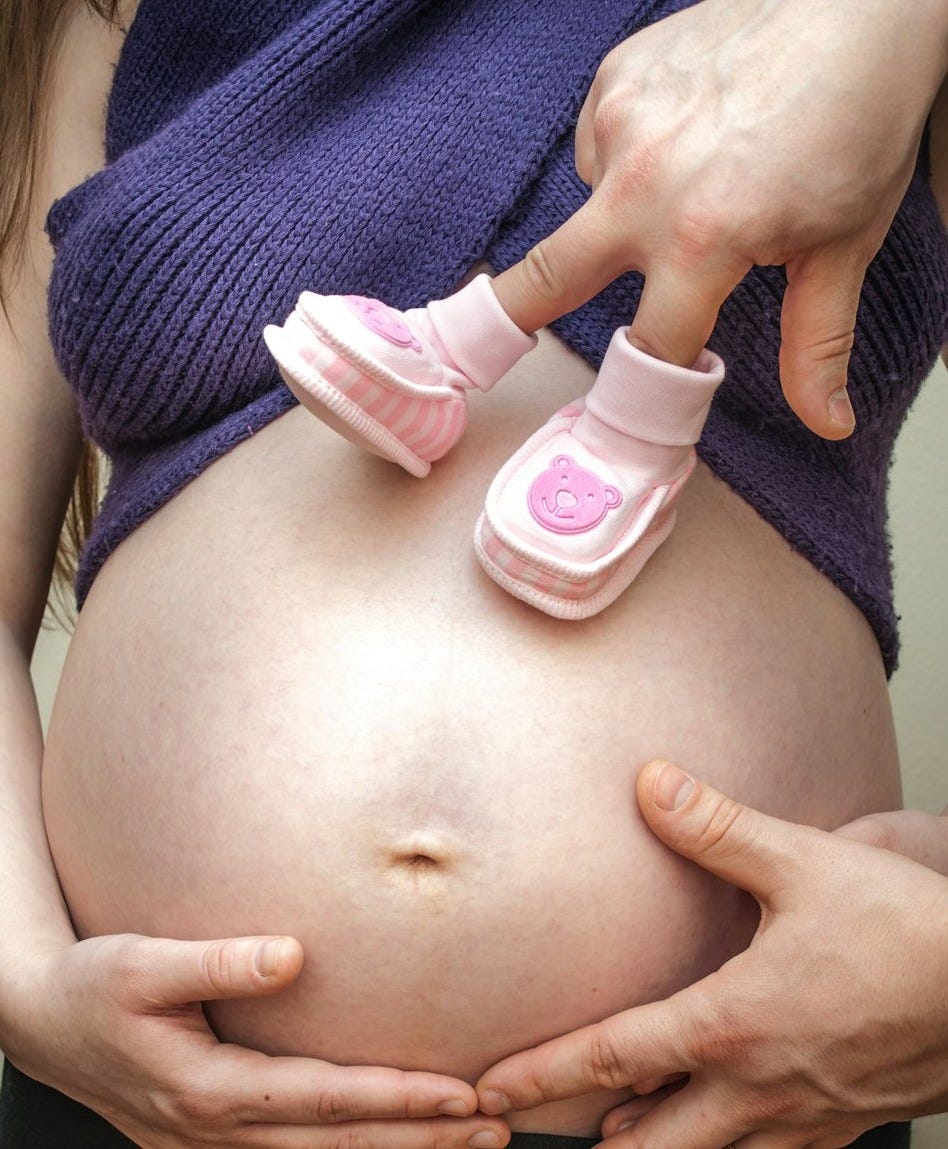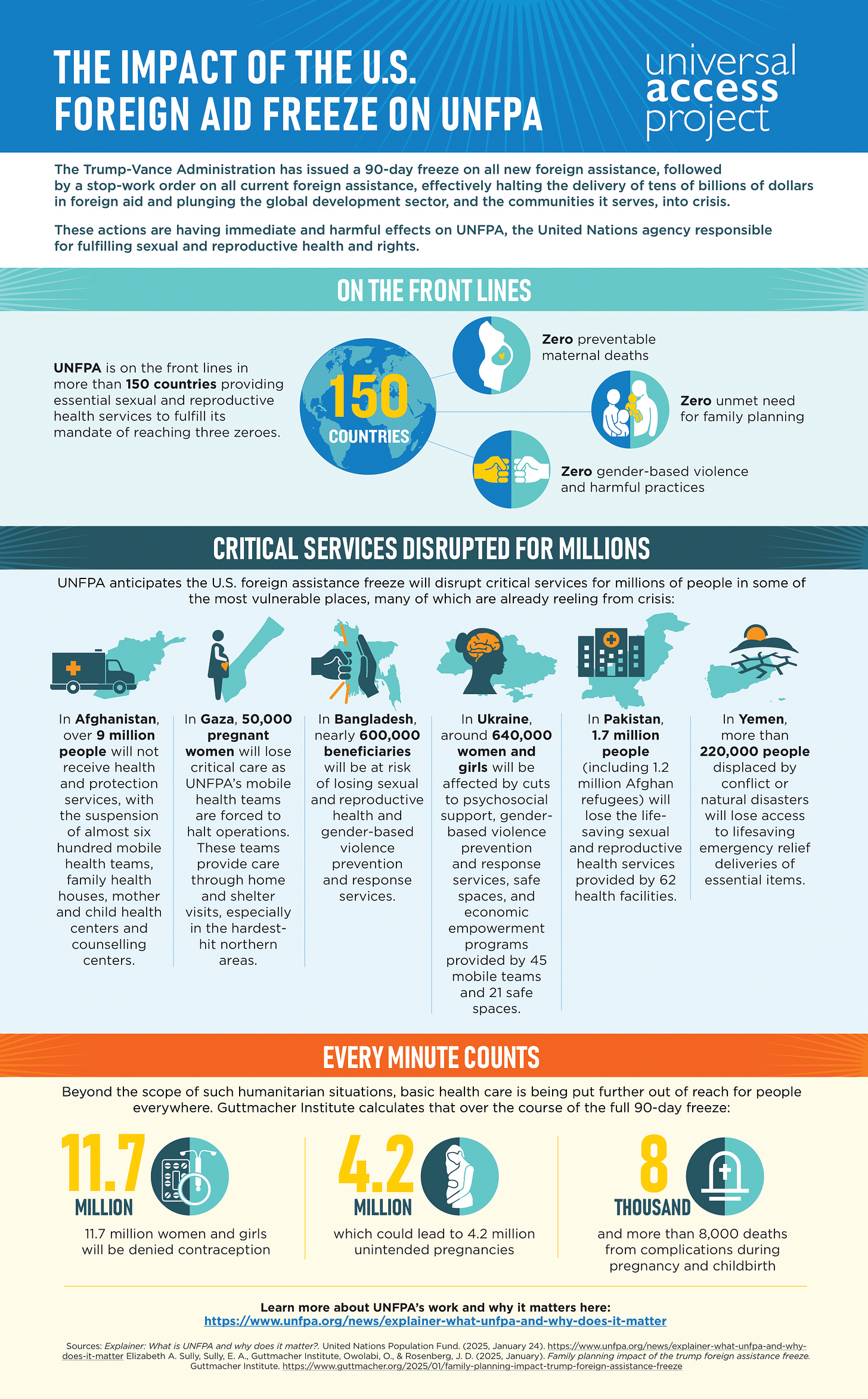How Trump's Attacks on The UN Population Fund Hurt Women Around the World
And how to fight back

One of the unsung miracles of the last century is modern family planning. Study after study has demonstrated that when women are able to plan their pregnancies, their health and welfare are dramatically improved. This is particularly true in developing countries, where contraceptive use is associated with huge declines in maternal mortality—as much as 40%. Infant and child mortality rates also plummet with increased access to family planning, as do sexually transmitted diseases like HIV/AIDS.
The benefits extend to the economic realm as well. Being able to plan pregnancies enables women to access education and enter the workforce. This not only serves the women themselves, their families, and their children, but entire societies. A modeling study in Kenya, for example, determined that if the unmet need for family planning were reduced by two-thirds in the coming decades, the country would experience a 51% increase in per capita income by 2050. Similar studies in other countries have pointed to huge macroeconomic gains associated with increased use of modern family planning tools like contraceptives.
Family planning is relatively cheap—and very cost-effective, too. The WHO says that for every dollar invested in family planning, six dollars are saved.
The challenge is not in the technology, but in getting family planning services to the communities where it is needed most, which are often the most marginalized places in the least developed countries in the world. The global health community calls this “meeting unmet needs” for family planning. Today, it is estimated that there are 214 million women in the developing world who want access to family planning but are unable to for a combination of economic, social, and political reasons.
This is where the UN Population Fund comes in. This is the UN agency charged with supporting reproductive and sexual health. This includes work in the context of natural disasters and crises, where the agency supports pregnant women and the health and welfare of women and girls more generally. It also includes improving access to family planning. UNFPA, as it is known, works with partners around the world to support the health of women, including getting family planning where it is needed most.
And now, it has been kneecapped by its largest supporter.
A source at UNFPA tells me that at 7pm on February, 26 UNFPA was informed that nearly all of its grants with USAID and the US State Department have been terminated.
This was not entirely unexpected. But the impact is nonetheless dire for women and girls around the world.
UN Dispatch has moved to Substack. We rely on crowdfunding to keep our coverage of the United Nations. Please support our work with your paid subscription. Use this discount link to get immediate access to the rest of the piece.
Since the 1980s, every Republican administration has blocked American funding for UNFPA. Every Democratic administration has restored it. The ostensible justification for Republican objections to UNFPA is that contributing to UNFPA would violate a 1985 law that prohibits funding to “any organization or program which, as determined by the president of the United States, supports or participates in the management of a program of coercive abortion or involuntary sterilization.” But in this case, the cut-off of UNFPA is simply part of the Trump administration’s broader foreign aid freeze.
It’s worth stating upfront that the UN Population Fund does not promote abortion as a method of family planning and is expressly prohibited from doing so. But it is nonetheless caught up in fraught American domestic politics about abortion. Democratic presidents support funding for UNFPA. Republican presidents do not — including, today, Donald Trump.
These grants, amounting to some $377 million in aid funding, were designated to provide critical maternal healthcare, protection from violence, rape treatment and other life-saving care in humanitarian settings. “This includes our work to end maternal death, safely deliver babies and address horrific violence faced by women and girls in places like Gaza, Sudan and Ukraine,” my source tells me. “This decision will have devastating impacts on women and girls, and the health and aid workers who serve them, in the world’s worst humanitarian crises.”
In his first term, Trump withheld nearly $70 million from UNFPA, creating a massive budget shortfall. But then, other countries significantly increased their contributions to fill the gap. Canada, the Netherlands, Sweden, Denmark, and Norway doubled their contributions to UNFPA, while other key contributors, like the United Kingdom, maintained a high level of funding.
This time around, it is unclear whether or not countries have the capacity or wherewithal to step up in a similar way. Foreign aid spending has been shrinking as humanitarian needs are skyrocketing, stretching thin already-strained foreign aid and development budgets. The United Kingdom and Switzerland, for example, have slashed their foreign aid budgets in recent weeks. Meanwhile, a rightward trend in many traditional donor countries has reduced the salience of foreign aid for sexual and reproductive health.
A sharp reduction in funding for UNFPA would hamper its life-saving work in emergencies and crises, like Syria, Haiti, the Democratic Republic of Congo, Sudan, Bangladesh and Ukraine, among many other places. It would also undermine slow but steady progress toward shrinking the number of women worldwide who have an unmet need for family planning and make out of reach the ultimate goal (embedded in the sustainable development goals) of universal access to family planning by 2030.
But this is not a foregone conclusion! Other donors could still step up as they did four years ago, as could coalitions of concerned global citizens and individual philanthropists. Doing so would mean fulfilling a particularly impactful and cost-effective intervention and demonstrating that even in the face of a regressive American administration, progress is still possible.
The funding is gone—but the need isn’t. The question now is whether the world will once again step up—or if millions of women and girls will be left behind.
UN Dispatch is moving to crowdfunding. Please share this post with colleagues and encourage them to purchase a subscription!



